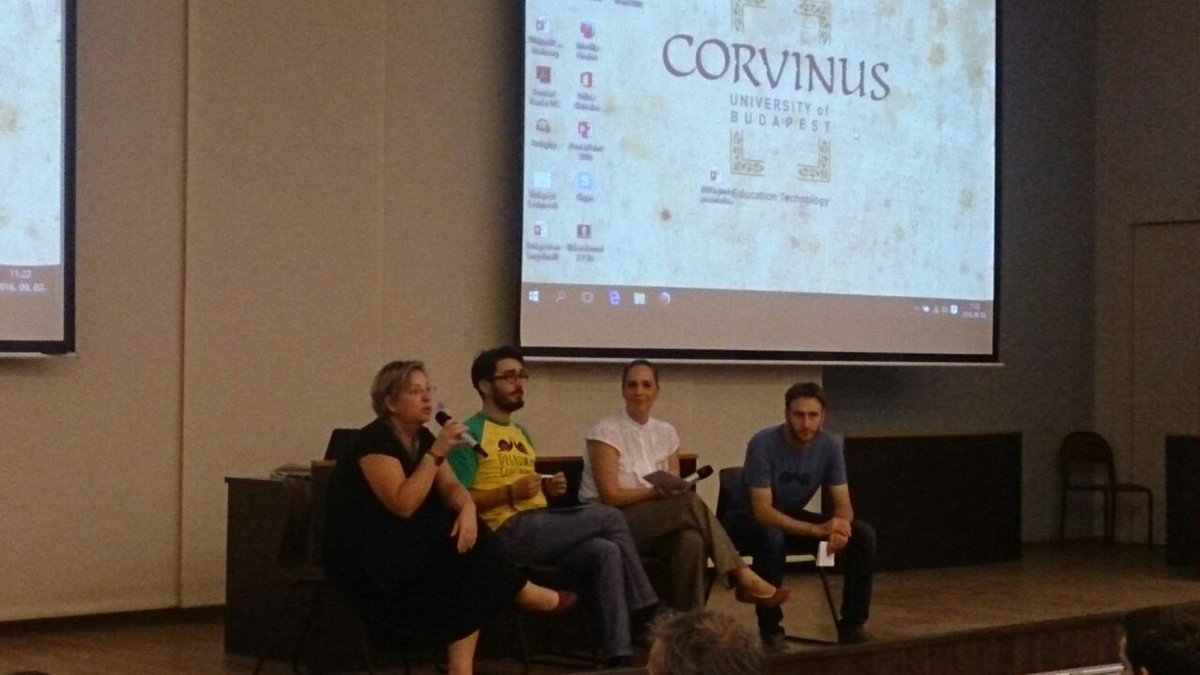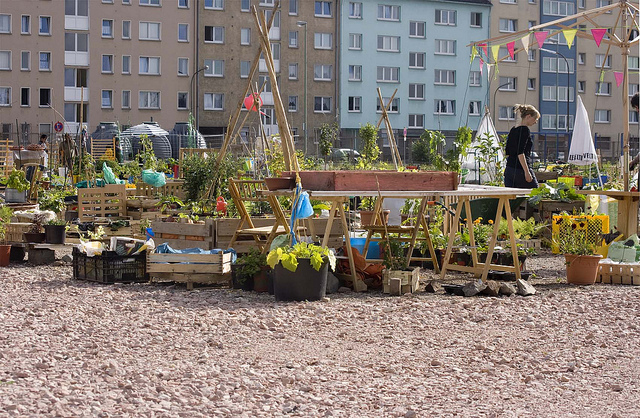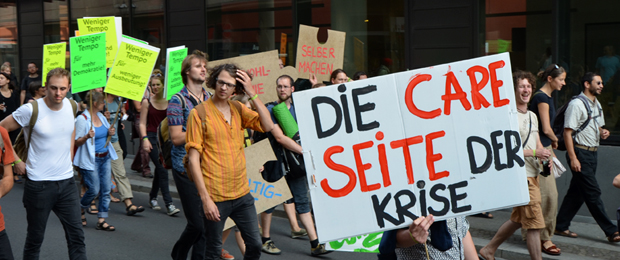After six days of workshops, discussions, practical activities and fun the summer school on degrowth and climate justice at the climate camp Rhineland has come to and end. With the slogan "Degrowth in Action", the summer school did not only break down the rather theoretical ideas of degrowth into concrete actions such as those against lignite mining in the region. It also provided an opportunity to directly experience what can be called "degrowth-life" on-site: The infrastructure for the more than 1000 participants of summer school and climate camp was completely self-made, starting from open-air cold showers and compost toilets via portable solar panels and a DIY low-tech windmill up to the vegan field-kitchen that depended on constant voluntary help by the campers. The decentral, non-hierarchical decision-structures on-site were another opportunity to experience how alternative organizational structures might look and feel.
But luckily, this was not all. More importantly, the summer school was a place to build up solidarity and alliances with activist movements all over the world. It became clear that, in all their diversity and with all their differences, emancipatory movements from North and South understand themselves as part of a broad global movement for systemic change. A vision that connects e.g. the countless local climate justice movements from the global South with the anti-coal movement in Germany; the struggle of the Kurds in Rojava with the anti-austerity movements in Southern Europe; the Degrowth with the Blockupy and the anti-TTIP movement and many many more. "Our struggle is with yours" as Heather Milton Lightening from the indigenous-led Canadian anti-tar sands campaign nailed it down.
On the closing panel it was emphasized however, that, important as all these alliances are, it is essential not to stop here. To put it with Tom Kucharz, political advisor for Podemos in Spain, the challenge now is to bring the struggle against the various symptoms of the failure of the economic system to a new political level mounting in joint action for real system change. As for COP 21 for example, the next UN climate summit in Paris, he sees the main challenge in not repeating the mistakes of Copenhagen to create hope around the official process. The movement has to stay firm instead and insist that it is not about climate change alone, but complete system change.
If it were up to the determination shown here at the climate camp, there would surely be nothing to fear about. One of the participants got a round of applause in the closing session when saying that being at summer school and climate camp has convinced him to take part in "Ende Gelände", the mass action against lignite mining as a first step of concrete action right thereafter. Finally Tadzio Müller, campaigner for climate justice, put Ende Gelände in line with many historic achievements that wouldn´t have been possible without concrete actions of civil disobedience.

As Vincent Ligey, coordinator of the Budapest Conference organizing team mentioned in the closing plenary, it was an experiment to hold an international degrowth conference in a former socialist country where the soil for degrowth ideas is not particularly fertile. The more it came as a surprise that the conference had received a widespread coverage in Hungarian media. Szandra Koves, press out...

On the Need for Collaboration Between Social Movements and Activisms Not that long ago, I left North America and arrived fresh and starry-eyed in Lund, Sweden, ready to begin my master’s degree in a program entitled Culture, Power and Sustainability. In my second year, I decided to write my thesis about the Transition Town movement, a social movement out of Great Britain born of the need to ac...

By Ulrich Schachtschneider A new star is born in the sky of the social movements: the degrowth-movement. The traditional left, however, observes this novelty somewhat critically – degrowth being a path that seems possible without the traditional left. Marxist, feminist and anti-racist analyses were largely missed at the latest Degrowth-Conference and where they were present, participants eyed ...